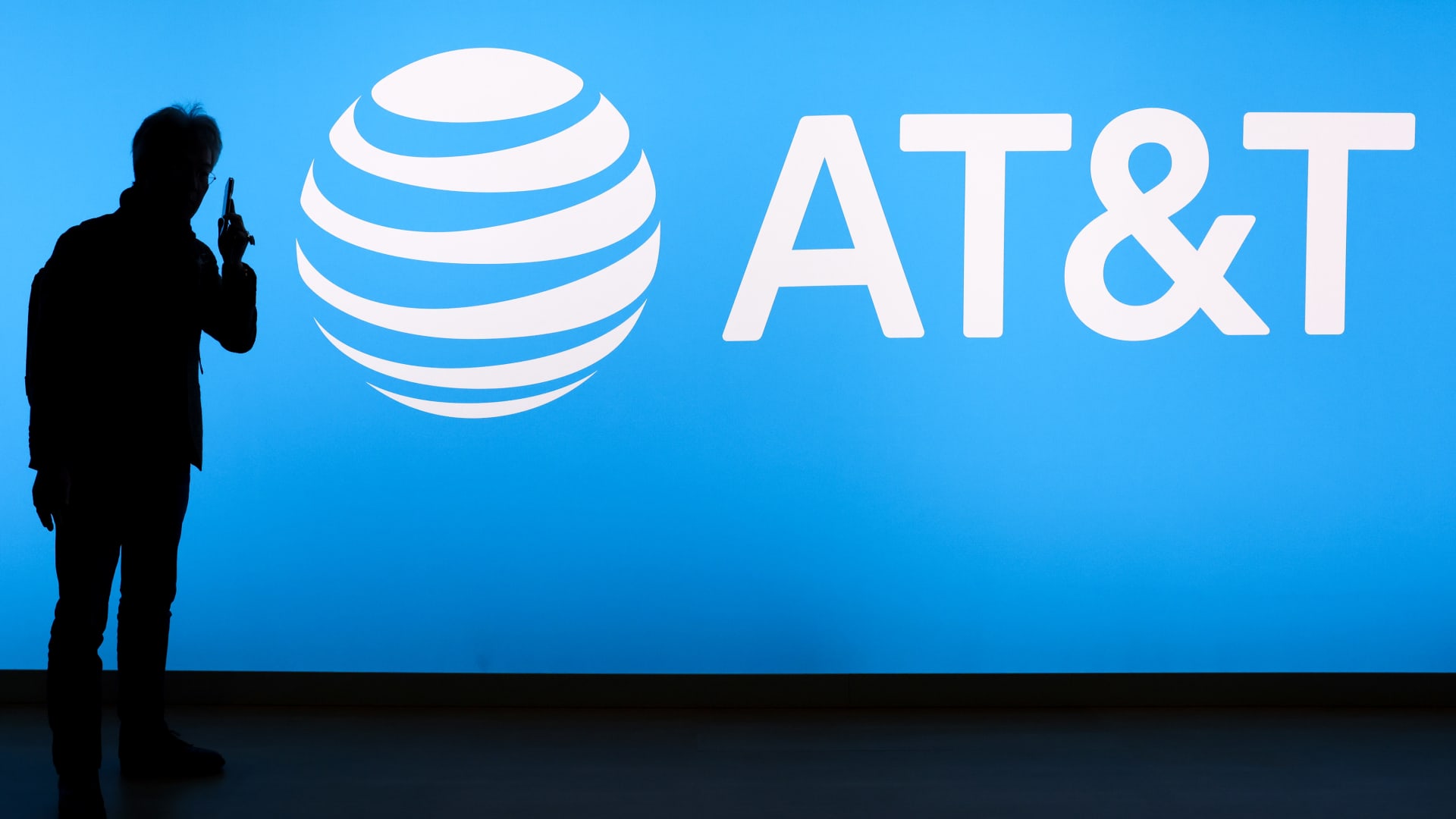AT&T shares fell Thursday after the telecommunications giant reported first-quarter results that saw subscriber growth but a miss on revenue.
The stock closed down more than 10%, at $17.65.
The company added 424,000 postpaid phone plans, which represents the amount of businesses and individual consumers that pay their bills at the end of each month.
That matched Wall Street expectations but it marked a dip compared to AT&T’s previous numbers, especially earlier in the pandemic. In the year earlier period, AT&T added 691,000 postpaid phone subscribers.
Investors look to postpaid phone numbers to measure the overall well-being of wireless companies’ profit centers. The early pandemic put an increased focus on the importance of a reliable cell connection, and analysts have been looking for slowdown indicators.
During the company’s previous earnings call, AT&T executives said they expect wireless industry growth to return to “normalized” levels this year.
Here’s how AT&T performed in the first quarter compared with what Wall Street anticipated, based on an average of analysts’ estimates compiled by Refinitiv:
- Earnings per share: 60 cents adjusted vs 59 cents expected
- Revenue: $30.14 billion vs $30.27 billion expected
For the quarter ended March 31, AT&T reported net income of $4.18 billion, or 57 cents a share, compared with $4.76 billion, or 65 cents a share, a year earlier. Excluding items, the company posted adjusted per-share earnings of 60 cents for the period. The company’s quarterly revenue rose 1.4% to $30.14 billion from a year earlier.
The carrier’s operations produced $1 billion in free cash flow, which was below analyst estimates.
On its earnings call Thursday, AT&T executives said the decline was “consistent with [its] expectations” due to the timing of capital investments and device payments. Executives said the company “remains confident” it will meet its forecast to generate around $16 billion in free cash flow this year.
After selling off DirecTV in 2021, AT&T has increasingly focused on its growing its wireless and home internet services.
“We believe our results demonstrate that the customer-centric strategy we launched almost three years ago continues to deliver the right mix of quality subscriber and profit growth that will prove sustainable over the longer term,” CEO John Stankey said in the company’s earnings call.
Competitors Verizon and T-Mobile are set to report results next week.
